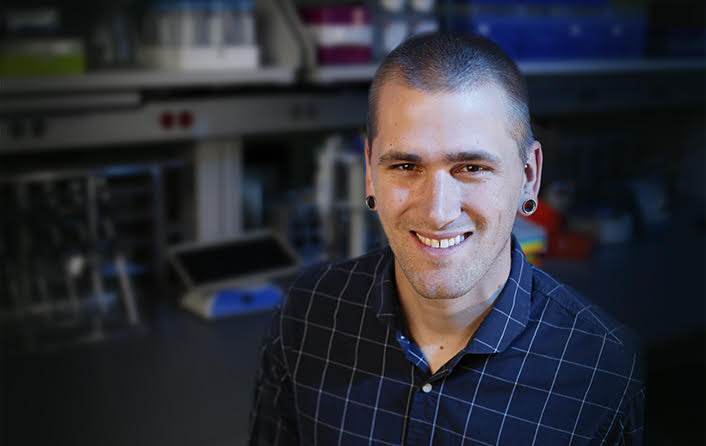
-
- Posted Monday November 15, 2021
TGen helps expand the diversity of the Human Cell Atlas
$500,000 grant from the Chan Zuckerberg Initiative enables international team co-led by TGen to create a genetic biobank for Indonesia
PHOENIX, Ariz. — Nov. 15, 2021 — While incredible advances in sequencing technology have led to a revolution in human genomics, the majority of this research has been carried out in individuals of European ancestry.
Now, as part of an effort to expand ethnic diversity in research, the Translational Genomics Research Institute (TGen), an affiliate of City of Hope, will use a $500,000 grant from the Chan Zuckerberg Initiative (CZI) to study Indonesia, the world’s fourth most populous nation. It is one of several similar projects funded by CZI that aim to increase ancestral representation of genomes profiled for the Human Cell Atlas project — a worldwide effort to characterize every type of cell in the human population.
“Including non-European populations in efforts to characterize cellular diversity is fundamental to fully understanding human biology and the risk of disease,” said Nicholas Banovich, Ph.D., an Associate Professor in TGen’s Integrated Cancer Genomics Division.
This initial 3-year project will focus, in part, on immune cells, and is expected to provide an immediate benefit to Indonesian doctors and their patients who contend with the tropical nation’s heavy burden of infectious diseases, including tuberculosis, malaria and dengue fever. In addition, Indonesia’s growing middle-class and demographic transition from rural subsistence communities to urban centers has come with an increase in life-style diseases, such as obesity and Type 2 diabetes.
“Our project does not focus on a particular disease, but rather on thoroughly characterizing a healthy immune system among both urban and rural communities of Indonesia,” said Dr. Banovich, who is coordinating an international team from Australia, New Zealand and Indonesia.
Coordinating with local researchers and community
Involving Indonesian researchers, doctors, community leaders and elders is essential to the success of the project. The team in Indonesia will be led by two talented investigators, Drs. Herawati Sudoyo and Safarina Malik, both of whom have a strong background in genetics and genomics. All of the experimental work will be conducted in Indonesia, which also will provide career-development opportunities and mentorships for junior Indonesian researchers.
While Indonesia is home to more than 275 million people — only China, India and the U.S. have larger populations — this nation remains virtually unrepresented in global human genomics.
One of the few significant characterizations of the country’s genomes was conducted as part of a 2019-20 study co-led by TGen, which identified gene expression changes between populations within Indonesia.
The same research team from this past study is also engaged in the new CZI-funded effort, providing links to a broad Indonesian network of local villages, hospitals and universities. Researchers from the Eijkman Institute will coordinate fieldwork, assemble blood donors and leverage their deep expertise to provide oversight and guidance.
Samples represent two waves of ancient migration
Blood samples will be obtained from 100 residents of Bali, and 100 residents of West Papua, representing the two major waves of human migration that began populating modern-day Indonesia more than 60,000 years ago. In addition to DNA analyses, samples will be tested for glucose, triglycerides, cholesterol and lipoprotein, and the results will be immediately returned to participants and local health centers to inform their future health care.
TGen’s work is part of a $28 million effort among 15 teams, supporting the inclusion of data from ancestrally diverse donors and adding it to the Human Cell Atlas (HCA). The lack of ancestral representation in genome research thus far has introduced significant biases and limited the ability to find disease treatments.
“To create effective treatments and cures for all people, the biomedical community must work to increase representation in scientific research. About 80 percent of current genomic data is from people of European ancestry, which has to change,” said Norbert Tavares, CZI Program Manager for Single-Cell Biology. “The Ancestry Networks for the Human Cell Atlas will bring a much-needed perspective to single-cell research and provide key insights into how ancestry impacts healthy and disease states and has the potential to inform the path to treatments.”
# # #
About the Chan Zuckerberg Initiative
The Chan Zuckerberg Initiative was founded in 2015 to help solve some of society’s toughest challenges — from eradicating disease and improving education, to addressing the needs of our local communities. Our mission is to build a more inclusive, just, and healthy future for everyone. For more information, please visit www.chanzuckerberg.com.
About TGen, an affiliate of City of Hope
Translational Genomics Research Institute (TGen) is a Phoenix, Arizona-based nonprofit organization dedicated to conducting groundbreaking research with life-changing results. TGen is affiliated with City of Hope, a world-renowned independent research and treatment center for cancer, diabetes and other life-threatening diseases: CityofHope.org. This precision medicine affiliation enables both institutes to complement each other in research and patient care, with City of Hope providing a significant clinical setting to advance scientific discoveries made by TGen. TGen is focused on helping patients with neurological disorders, cancer, diabetes and infectious diseases through cutting-edge translational research (the process of rapidly moving research toward patient benefit). TGen physicians and scientists work to unravel the genetic components of both common and complex rare diseases in adults and children. Working with collaborators in the scientific and medical communities worldwide, TGen makes a substantial contribution to help our patients through efficiency and effectiveness of the translational process. For more information, visit: tgen.org. Follow TGen on Facebook, LinkedIn and Twitter @TGen.
Media Contact:
Steve Yozwiak
TGen Senior Science Writer
602-343-8704
[email protected]


